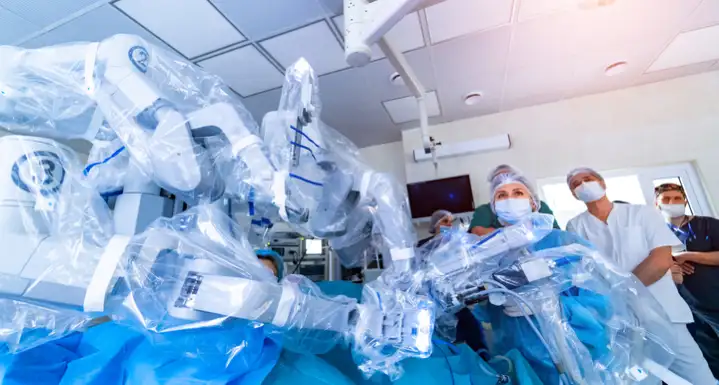 Articles
ArticlesMillions of Americans depend on medical devices to make their lives better. You don’t expect that these devices could end up doing more harm than good in some cases.
Prosthetics, pacemakers, and implants are just a few of the products at risk for being dangerous and defective.
It’s essential to understand how defective medical devices get into the market.
If a dangerous or defective product injured you or a loved one, it’s important to speak with a skilled product liability lawyer who can help.
It can be terrifying to read through a defective medical devices list, as many dangerous products have reached the market at one point in time.
Here’s a look at six of the most dangerous and defective medical devices to better understand the potential risks.
Transvaginal Mesh
A transvaginal mesh is a surgical patch that is implanted on a woman’s vaginal wall. It was designed to correct pelvic organ prolapse (POP) and treat stress urinary incontinence (SUI).
Unfortunately, many patients developed mesh erosion and organ perforation.
Lawsuits are ongoing, including a recent settlement by Boston Scientific to pay $189 million related to marketing its surgical mesh devices.
Medtronic MiniMed Insulin Pumps
Medtronic’s MiniMed insulin pumps have been responsible for nearly 2,200 injuries and at least one death.
While that might not seem like that many, Medtronic is the biggest insulin pump manufacturer and has been involved in at least 20 recalls and over 100 lawsuits in the last 13 years.
An analysis shows that since 2008, insulin pumps and their related components have been responsible for the highest number of injuries, malfunctions, and deaths.
The problem with the MiniMed insulin pump results from a dosing defect.
A missing or broken retainer ring can cause under- or overdosing, causing a diabetic patient to experience hypoglycemia or hyperglycemia.
Guidant Defibrillators
Defibrillators are also known as pacemakers, which are used to treat heart disease in people who have a risk of life-threatening abnormal heart rhythms, known as heart arrhythmia.
A pacemaker will deliver an electrical shock to the person’s heart to restore their normal heart rhythm.
Several models of Guidant’s implantable pacemakers were recalled in 2005 due to various failures.
These failures resulted in the pacemaker not delivering the electrical shock it needed to during an arrhythmia.
There were additional recalls after this when Boston Scientific acquired Guidant.
Hip Implants
Hip implants have been the subject of numerous lawsuits and recalls.
Metal implants have resulted in allergic reactions, infection, metal poisoning, bone loss, and nerve damage.
Injured patients have filed lawsuits against several companies, including DePuy, a division of Johnson & Johnson.
Another brand with numerous cases is Stryker, the subject of multiple complaints related to several different implants.
Complaints often involve significant pain that requires the patient to undergo another surgery to fix.
DaVinci Robot
The DaVinci Robot is a surgical robot used to help surgeons get into hard-to-reach areas. Unfortunately, surgeon error and robot malfunctions have led to severe problems such as infections, pierced organs, and electrical burns.
There’s also a risk of losing a piece of the instrument in a patient’s body, such as a needle.
IVC Filters
An IVC filter, or inferior vena cava filter, is a blood clot filter placed in the IVC to help prevent large blood clots from reaching the lungs and heart.
The IVC is the largest vein in the body, and the filter is an alternative for those patients for whom blood thinners do not work or are not an option.
The IVC filter is only temporary and not designed to be placed in the body permanently.
Some of the risk complications include fracture, penetration, migration, and eventually blood vessel narrowing with a risk of leg swelling and blood clots.
The risk of complications increases the longer it’s implanted.
Who Is Responsible for Defective Medical Devices?
While the U.S. Food and Drug Administration (FDA) closely monitors and regulates medical devices, some dangerous and defective products make it on the market.
Products could be faulty from the start in their design, be defective during the manufacturing process, or be marketed deceptively.
If you or someone you love was injured by any medical device or medication, it’s crucial to contact an experienced product liability lawyer right away. You could have a legal claim for your damages.
At the Fob James Law Firm, we have recovered millions of dollars in damages for numerous personal injury cases, including those involving defective medical devices.
To learn more about how we can help, contact our office today to schedule a consultation.
